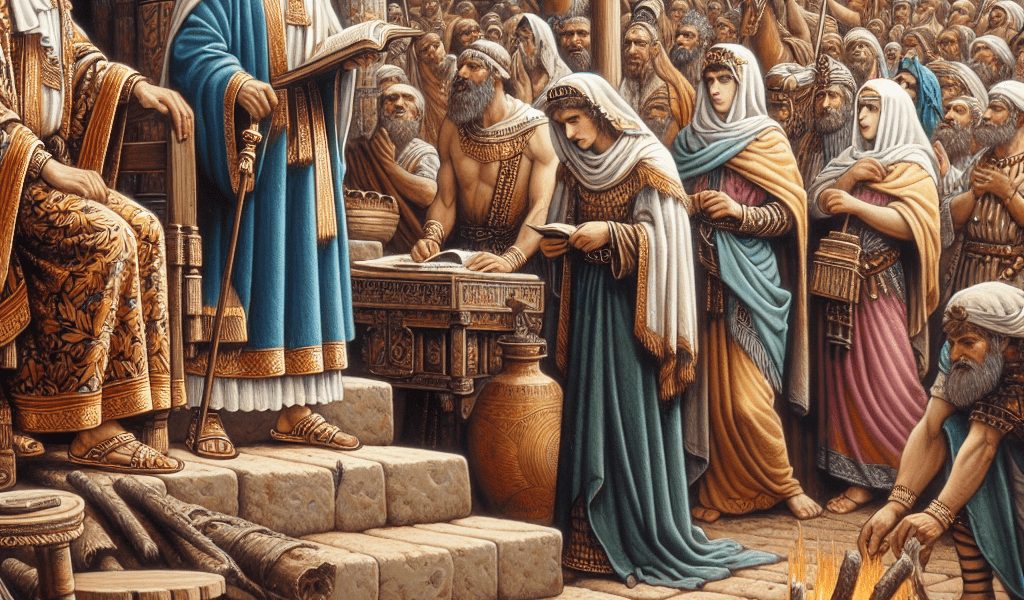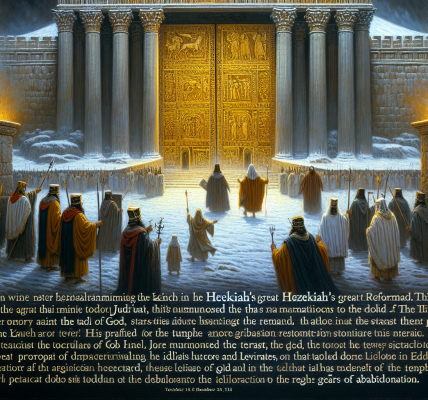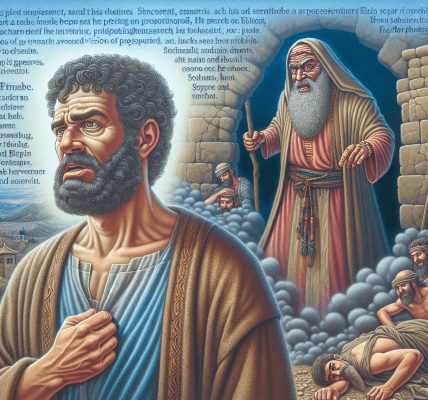In the seventh year of Jehu’s reign, Jehoash became king. Both native to Jerusalem, his mother Zibiah hailed from the humble city of Beersheba, contributing to his divine education. Jehoash was known for ruling in a manner that was pleasing to Jehovah for the full forty years of his reign. This was made possible under the devout instruction of Jehoiada the Priest, who guided him throughout his rule.
However, despite Jehoash’s righteous rule, people continued to worship in high places, carrying out sacrifices and burnt offerings. The high places were not eliminated, persisting against Jehovah’s will.
King Jehoash saw the continued devotion of the people to Jehovah and the generous offerings they brought into the house of Jehovah. He ordered the priests to take this money and use it to repair the house of Jehovah where it had been damaged. He urged them to take money from those they knew and repair the house whenever they found a breach.
Twenty-three years into Jehoash’s reign, it was discovered that the priests had not been repairing the house of Jehovah. Frustrated, Jehoash confronted Jehoiada and the other priests about their negligence. He commanded them to stop accepting contributions for the repairs but to use those already given solely for the purposes intended. The priests agreed, and they stopped receiving repair funds and ceased repairing the House themselves.
In response to this agreement, Jehoiada took a chest, bored a hole in its lid, and placed it next to the altar. All the offerings brought into Jehovah’s house were put into this chest. When it was seen that a great deal of money had accumulated in the chest, the king’s scribe and the high priest jointly collected the money, weighed it, and divided it.
They then provided the money to those responsible for overseeing the repairs to Jehovah’s house. Carpenters, builders, stone masons, and stone cutters all received their share and used it for repairs, as well as purchasing timber and hewn stone. The repair work began, yet there were no silver cups, snuffers, basins, trumpets, or any vessels of gold or silver made for the house of Jehovah with the donated money.
Instead, the funds were exclusively used for the purpose intended – to repair Jehovah’s house. The overseers of the repair were trusted not to cheat the workers; they faithfully delivered the money and work proceeded.
Nevertheless, it should be noted that the money for the trespass and sin offerings was not put into Jehovah’s house. These funds remained with the priests.
At this time, Hazael, the king of Syria went to war against Gath and took the city. Feeling emboldened, Hazael proposed to invade Jerusalem. However, King Jehoash circumvented this attack. He gathered all the sacred treasures set aside by his predecessors, Jehoshaphat, Jehoram, and Ahaziah, together with his own treasures. These, along with all the gold found in Jehovah’s house and the king’s house, were sent to Hazael. Evidently pleased, Hazael retreated from Jerusalem.
This was hardly the end of Jehoash’s challenges. A conspiracy brewed within his servants, leading to his eventual assassination at the house of Millo on the path to Silla. It was there that his servants, Jozacar and Jehozabad, executed their scheme, striking down Jehoash. He was then buried with his ancestors in the city of David, and his son, Amaziah, succeeded him as king.




